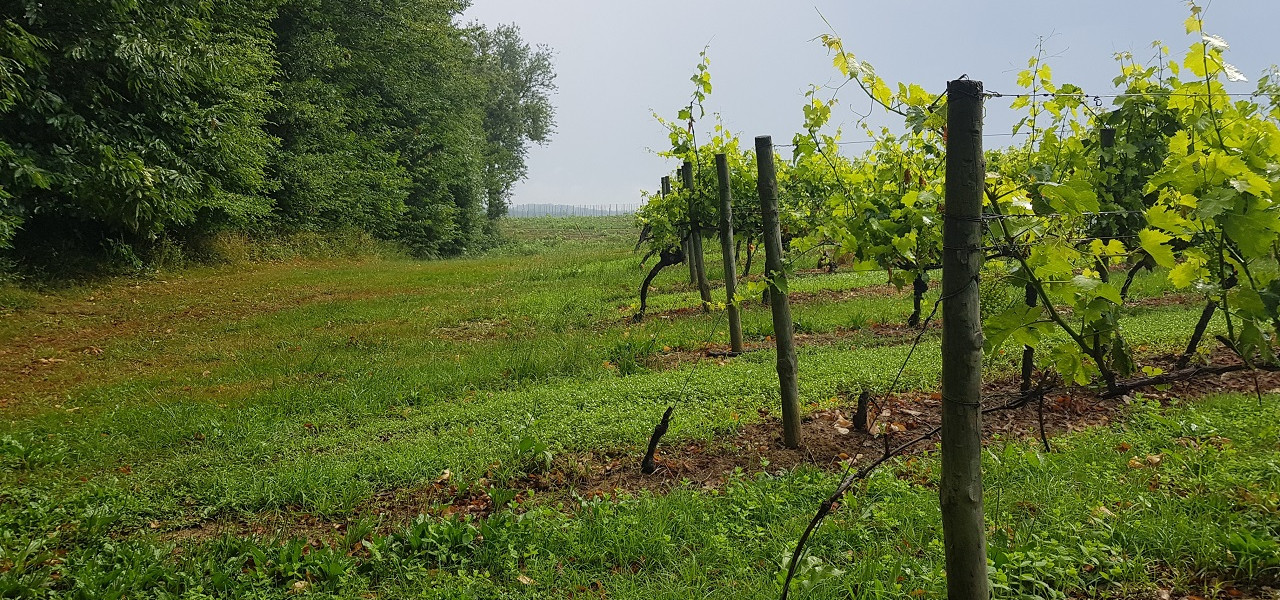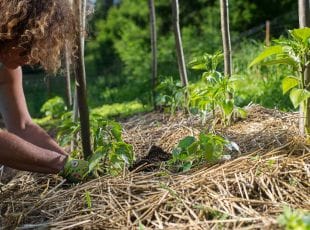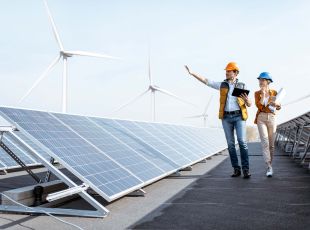Le Printemps des Terres: Supporting the ecological transition
Le Printemps des Terres is a mission-driven company that helps farmers to become actors in the ecological transition. In concrete terms, Le Printemps des Terres purchases agricultural land, wetlands and forests in poor condition, in order to restore them sustainably and in a large-scale, ecologically responsible way, while also generating income for their farmers and owners.
The company leases these lands to farmers and supports them on the ground to sustainably restore ecosystems that generate biodiversity and natural carbon sequestration. Farmers then have the possibility to purchase these land on advantageous terms starting in the 5th year, on the express condition of guaranteeing the long-term continuation of agricultural practises that respect the environment and biodiversity and climate challenges.
BNP Paribas chose Le Printemps des Terres for its 360° approach: It works on all types of land - whether cultivated or not, forest land, meadows and marshes – and then helps responsible farmers to settle the land and change their practices towards more regenerative agriculture. The company also measures the number of tons of CO2 sequestered and the surface area of biodiversity restored or preserved and then sells carbon offsetting credits with maximum priority to local buyers.
This very innovative approach was developed by its two founders, whose work BNP Paribas has been following for many years: Sylvain Goupille, who was previously working on financing environmental protections at BNP Paribas from 2005 to 2011, before launching Althelia (now Mirova Natural Capital), a pioneer fund manager in the protection of forests and oceans; and Laurent Piermont, a recognised expert in biodiversity who initiated the CDC Biodiversité, a subsidiary of the Caisse des Dépôts et Consignations that offers companies ways to offset their negative impacts on biodiversity.
To learn more, we interviewed Sylvain Goupille, Associate Director of Le Printemps des terres
Why do you choose to buy land in poor condition?
We prefer to buy bad land, forest plots damaged by diseases, fires or storms and restore them ecologically because we can create more positive shor- term impact and long-term resilience. This makes it easier for us to put in place solutions for climate change adaptation.
How do we restore land in an ecological way?
In concrete terms, this means, for example:
- Planting or restoring hedges for cultivated land,
- The establishment of agroforestry, i.e. planting trees every 40 metres in alignment,
- Planting new species in forests that are resistant to climate change, with different growth cycles,
- The restoration of vegetation along a riverbank.
What is the profile of the farmers who choose you?
It is mostly farmers who settle on-site: Young people who want to take over the family business but want to move toward ecological agriculture; that, or farmers who simply do not have sufficient funds to buy land... In the coming years, there will be massive retirements of French farmers from the babyboomer generation (nearly half!). When they sell their operations, there is an immense opportunity for the ecological transition because new generations want more responsible farming that is less intensive.
BNP Paribas' impact investments for its own capital
At BNP Paribas, the Group CSR teams and BNP Paribas Principal Investments - an entity in charge of investing on the Group's direct investments- are co-responsible for deploying a €200 million in funds for local development and climate, social and solidarity actions, and natural capital. This allows for a one-stop-shop of essential and necessary expertise.
What does this acquisition of BNP Paribas Group's stake bring to your share capital?
Partnering with a financial group that I consider to be Europe's leader in impact investing is a major asset for our development. The ecological transition needs leading financial players to multiply actions and carry them out on a large scale.
“We are jointly responsible for the deployment of these funds, which makes it possible to combine the necessary essential expertise in a one-stop shop. This investment team relies on around 40 investment, sustainable development and impact experts, but also more broadly on Group experts, to serve the objectives defined by senior management.”
What do you think about working with the Group's Impact Investing teams?
It's quite unique to have a team of two phase investors, which brings together business and CSR experts. They challenge us in all dimensions: Strategy, governance, development plan, risks, profitability, ecological and biodiversity solutions, legal constraints... And they do so with a lot of added value, while other investors are rather passive! This has helped us move forward and will be very useful in the long term.
"We work hand in hand to select the companies in which we want to invest according to our financial and extra financial criteria. Each brings its own specific expertise: Energy and ecological transition, biodiversity, financial analysis, networks of contacts and partners, etc. "
Photo credit : Les Printemps des Terres





